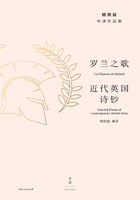In 1837, after living for twenty-seven years, half maintained by the Hulots and her Uncle Fischer, Cousin Betty, resigned to being nobody, allowed herself to be treated so. She herself refused to appear at any grand dinners, preferring the family party, where she held her own and was spared all slights to her pride.
Wherever she went--at General Hulot's, at Crevel's, at the house of the young Hulots, or at Rivet's (Pons' successor, with whom she made up her quarrel, and who made much of her), and at the Baroness' table --she was treated as one of the family; in fact, she managed to make friends of the servants by making them an occasional small present, and always gossiping with them for a few minutes before going into the drawing-room. This familiarity, by which she uncompromisingly put herself on their level, conciliated their servile good-nature, which is indispensable to a parasite. "She is a good, steady woman," was everybody's verdict.
Her willingness to oblige, which knew no bounds when it was not demanded of her, was indeed, like her assumed bluntness, a necessity of her position. She had at length understood what her life must be, seeing that she was at everybody's mercy; and needing to please everybody, she would laugh with young people, who liked her for a sort of wheedling flattery which always wins them; guessing and taking part with their fancies, she would make herself their spokeswoman, and they thought her a delightful /confidante/, since she had no right to find fault with them.
Her absolute secrecy also won her the confidence of their seniors; for, like Ninon, she had certain manly qualities. As a rule, our confidence is given to those below rather than above us. We employ our inferiors rather than our betters in secret transactions, and they thus become the recipients of our inmost thoughts, and look on at our meditations; Richelieu thought he had achieved success when he was admitted to the Council. This penniless woman was supposed to be so dependent on every one about her, that she seemed doomed to perfect silence. She herself called herself the Family Confessional.
The Baroness only, remembering her ill-usage in childhood by the cousin who, though younger, was stronger than herself, never wholly trusted her. Besides, out of sheer modesty, she would never have told her domestic sorrows to any one but God.
It may here be well to add that the Baron's house preserved all its magnificence in the eyes of Lisbeth Fischer, who was not struck, as the parvenu perfumer had been, with the penury stamped on the shabby chairs, the dirty hangings, and the ripped silk. The furniture we live with is in some sort like our own person; seeing ourselves every day, we end, like the Baron, by thinking ourselves but little altered, and still youthful, when others see that our head is covered with chinchilla, our forehead scarred with circumflex accents, our stomach assuming the rotundity of a pumpkin. So these rooms, always blazing in Betty's eyes with the Bengal fire of Imperial victory, were to her perennially splendid.
As time went on, Lisbeth had contracted some rather strange old-maidish habits. For instance, instead of following the fashions, she expected the fashion to accept her ways and yield to her always out-of-date notions. When the Baroness gave her a pretty new bonnet, or a gown in the fashion of the day, Betty remade it completely at home, and spoilt it by producing a dress of the style of the Empire or of her old Lorraine costume. A thirty-franc bonnet came out a rag, and the gown a disgrace. On this point, Lisbeth was as obstinate as a mule; she would please no one but herself and believed herself charming; whereas this assimilative process--harmonious, no doubt, in so far as that it stamped her for an old maid from head to foot--made her so ridiculous, that, with the best will in the world, no one could admit her on any smart occasion.
This refractory, capricious, and independent spirit, and the inexplicable wild shyness of the woman for whom the Baron had four times found a match--an employe in his office, a retired major, an army contractor, and a half-pay captain--while she had refused an army lacemaker, who had since made his fortune, had won her the name of the Nanny Goat, which the Baron gave her in jest. But this nickname only met the peculiarities that lay on the surface, the eccentricities which each of us displays to his neighbors in social life. This woman, who, if closely studied, would have shown the most savage traits of the peasant class, was still the girl who had clawed her cousin's nose, and who, if she had not been trained to reason, would perhaps have killed her in a fit of jealousy.
It was only her knowledge of the laws and of the world that enabled her to control the swift instinct with which country folk, like wild men, reduce impulse to action. In this alone, perhaps, lies the difference between natural and civilized man. The savage has only impulse; the civilized man has impulses and ideas. And in the savage the brain retains, as we may say, but few impressions, it is wholly at the mercy of the feeling that rushes in upon it; while in the civilized man, ideas sink into the heart and change it; he has a thousand interests and many feelings, where the savage has but one at a time. This is the cause of the transient ascendency of a child over its parents, which ceases as soon as it is satisfied; in the man who is still one with nature, this contrast is constant. Cousin Betty, a savage of Lorraine, somewhat treacherous too, was of this class of natures, which are commoner among the lower orders than is supposed, accounting for the conduct of the populace during revolutions.














